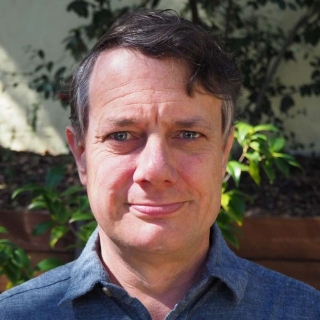How to translate the finger prints of climate change into more effective early warning: a scientific adventure
Watch it here
Presenter
Chris Funk
Director, Climate Hazards Center
Description
The world is being impacted by more extreme weather and climate, and these shocks are hurting millions of people and causing billions of dollars in economic losses. Climate change is increasing the intensity and frequency of these events. But how we perceive climate change profoundly modulates our ability to understand, identify, monitor and predict hazards. One conceptual model of climate, related to the tendency to treat climate change as ‘external forcing’ — best identified by averaging large ensembles of climate change simulations — tends to obscure the relationship to extremes. Extreme outcomes become muted by the averaging. An alternative ‘energy convergence’ conceptual model of climate change focuses on how ‘extra’ heat energy moves through the climate system, converging in specific regions, producing potentially predictable hazards.
In this talk, I draw from my new book ‘Drought Flood Fire: How climate change contributes to recent catastrophes’ and my ~20-years of work with the Famine Early Warning Systems Network to describe how an ‘energy convergence’ mindset can empower us to cope with climate change. Focusing on East Africa, I describe how human induced warming in the western and northern Pacific interacts with naturally occurring ‘La Niña’, ‘El Niño’ and ‘Indian Ocean Dipole’ events to (sometimes) predict droughts many many months in advance. Focusing on the western United States, I describe how similar relationships drive the extensive precipitation deficits and extreme temperatures we are experiencing today. Finally, I explain the direct connection between increasing air temperatures, vapor pressure deficits, and wildfire extent.
I close with some thoughts regarding ‘Humanitarian Earth Science’. While the climate crisis is real and concerning, we also live in an age of immense human capacity. Never have so many been able to do so much, see so much, or know so much. Seeing climate change, not just believing in it, is empowering.
